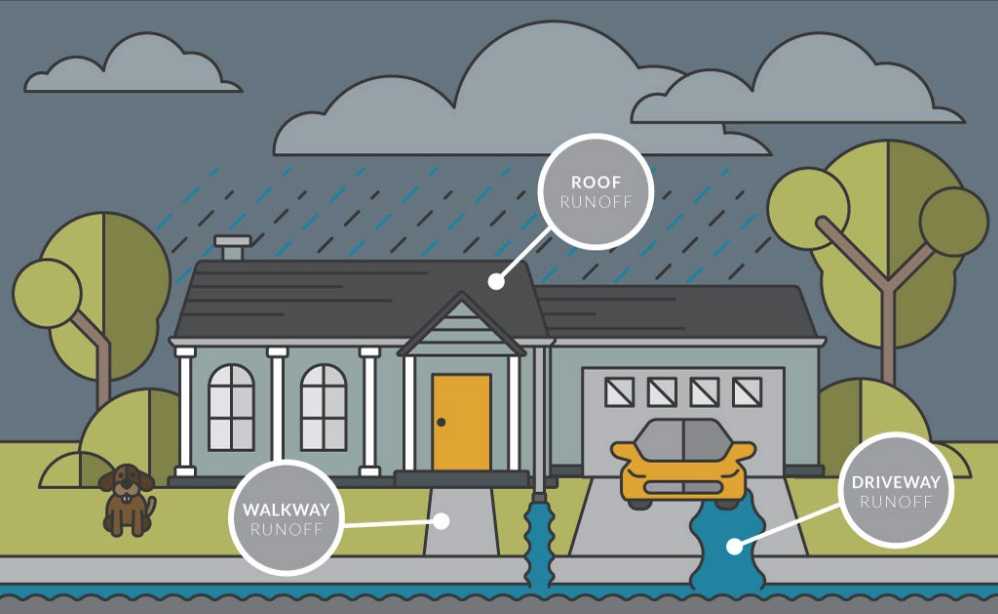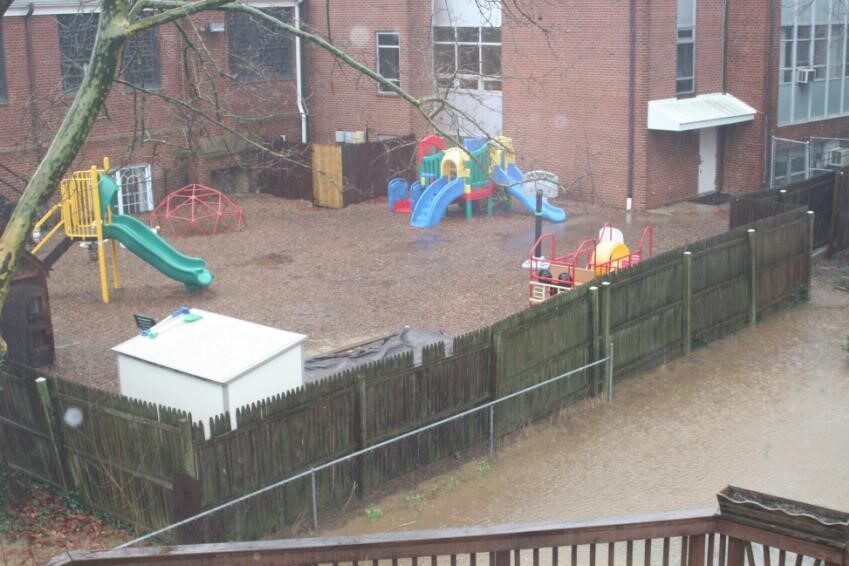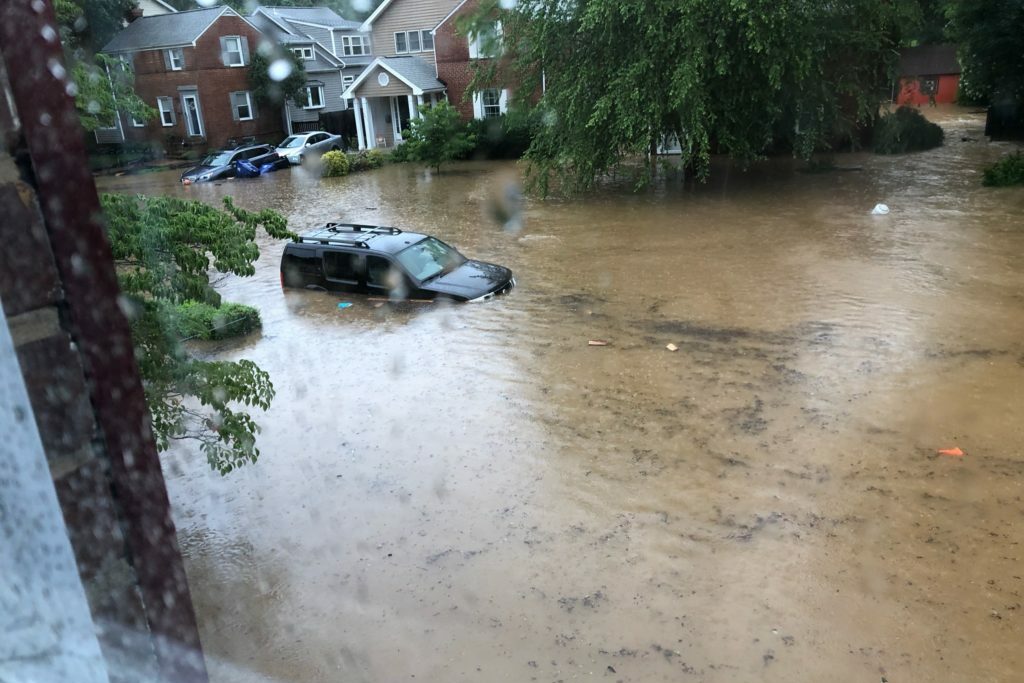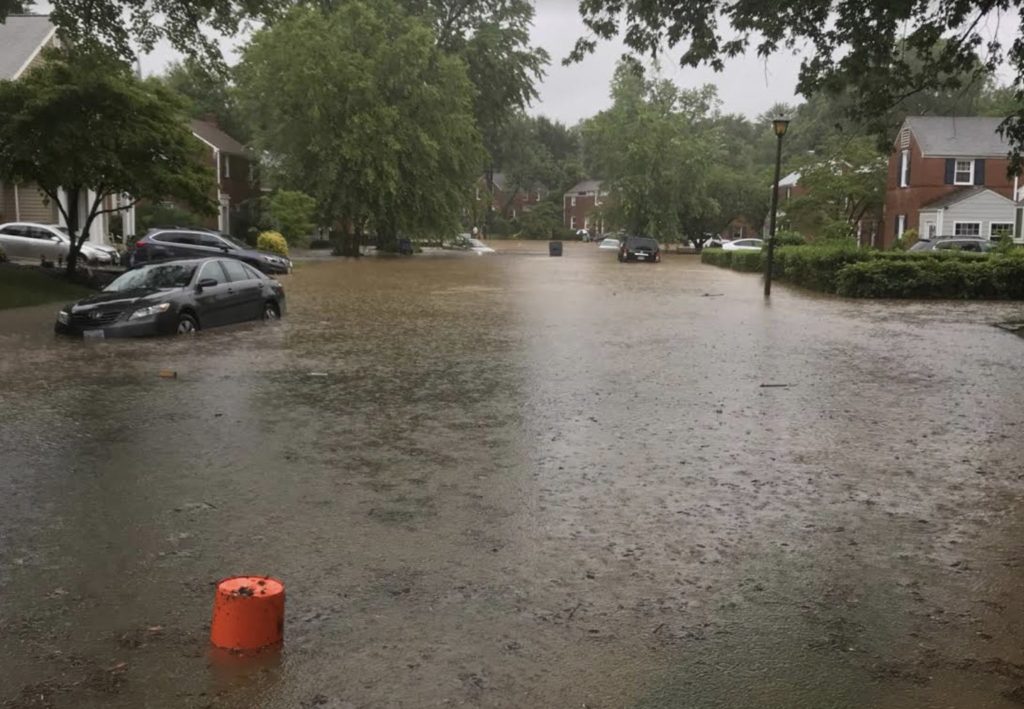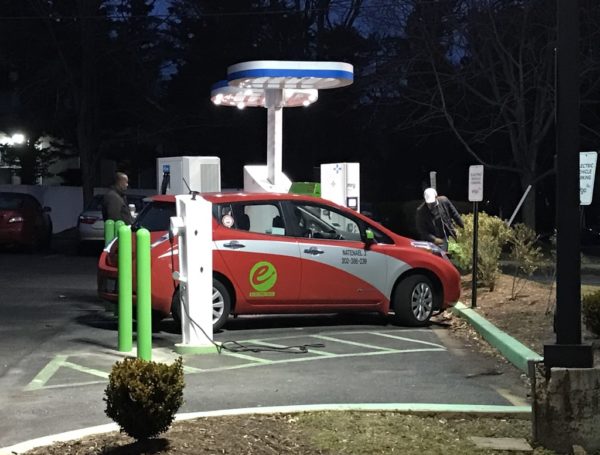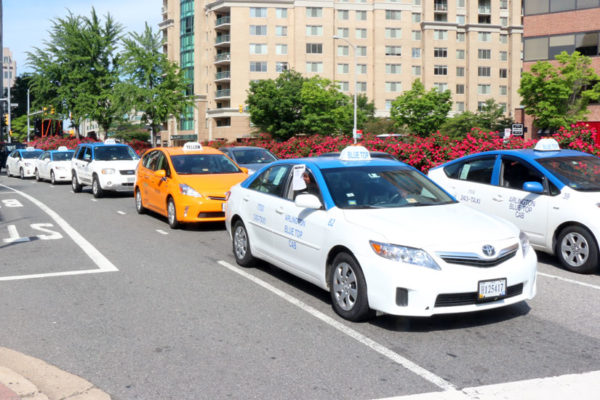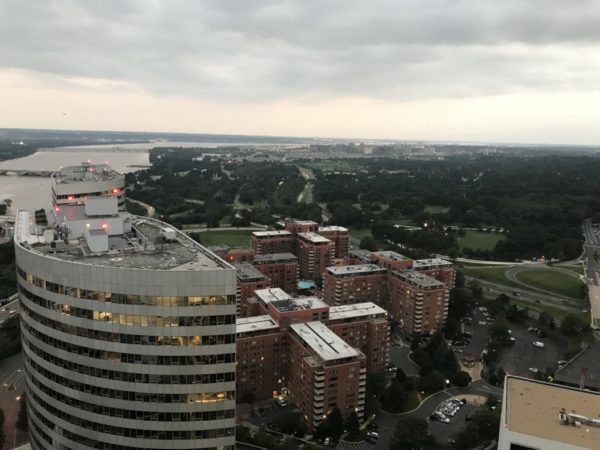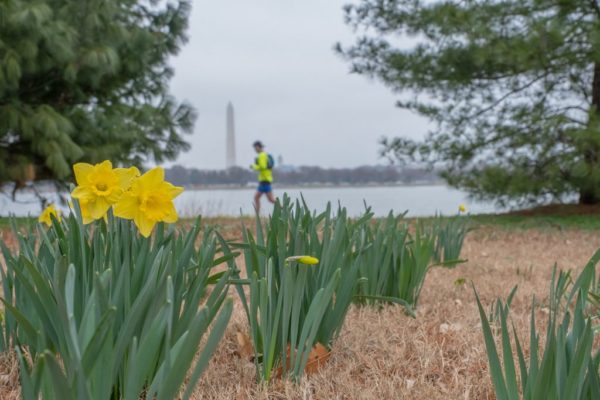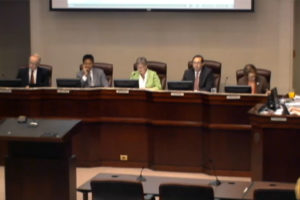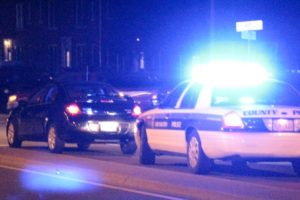Last week, residents may have received a postcard outlining a new tax they can expect next year: a stormwater utility fee.
Like electric, gas, or water utility bills, this fee effective Jan. 1, 2024, would charge properties a fee based on use of and impact on Arlington County’s stormwater system. The new fee will replace an existing sanitary district tax calculated based on property assessments.
Residents of properties with more hard surfaces that do not let rain soak into the ground — such as roofs and driveways — can expect to pay larger fees than those with fewer such surfaces. Property owners can receive credits for steps they take to reduce stormwater runoff.
Revenue from the fee will fund stormwater capital projects — to the tune of $331 million over the next decade. To mitigate flooding, Arlington is also buying properties in flood-prone areas, adding stormwater detention vaults and making small drainage improvements, among other projects.
“The County is making this change now because the rise in severe flooding in recent years requires us to increase investments in our stormwater system, and a utility is a fairer way to distribute the cost,” per the county website. “These investments will help maintain, upgrade, and scale our stormwater infrastructure to better protect Arlington from future severe rainstorms.”
The Arlington County Board approved the fee with the 2024 budget earlier this year. It comes on the heels of a 2020 study by a consultant that recommended the switch and further study by staff.
The new model is fairer, says Arlington County, because it found property assessments were “weakly correlated” to impervious surface and these impermeable areas are “a better estimate of usage of the stormwater assessment.”
Before, the sanitary tax amounted to $0.017 per $100 of assessed value, or $136 a year for a home assessed at $800,000. Now, single-family homes could see a similar starting point for the stormwater utility fee, of $138 for homes under 1,600 square feet, with fees increasing as square footage increases.
Apartment and condo dwellers could see a flat rate of around $45.
This fee is based on a unit of measure Arlington County devised, called an “Equivalent Residential Unit.” The county calculated this by finding the average impervious coverage for single-family detached properties, which is 2,400 square feet.
Currently, one ERU is roughly $230-250, according to the county, though the final rate for 2024 will be set this fall and annually thereafter. Property owners would be charged based on how many ERUs compose their property. They can estimate that fee using a tool the county created.
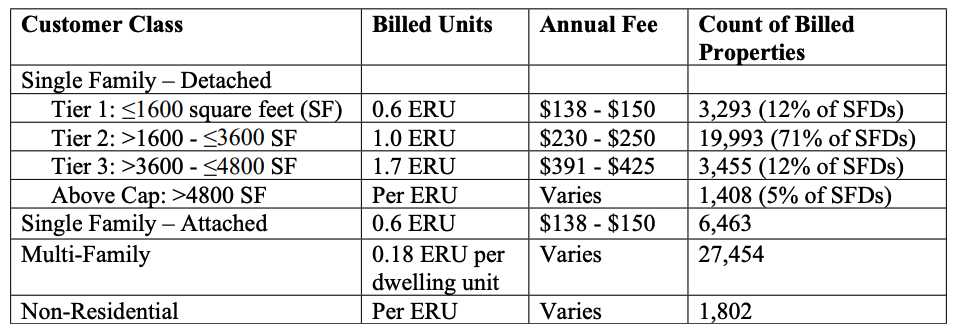
People looking for some relief can apply for a credit program that rewards voluntary actions such as adding rain gardens. From Nov. 1 through Jan. 15, all property owners can apply for voluntary credits to offset up to 35% of their bill, or about $80 per ERU.
“The credit program is not a bill assistance program, but rather a thank you to customers for doing the right thing for the environment,” the county website says.


